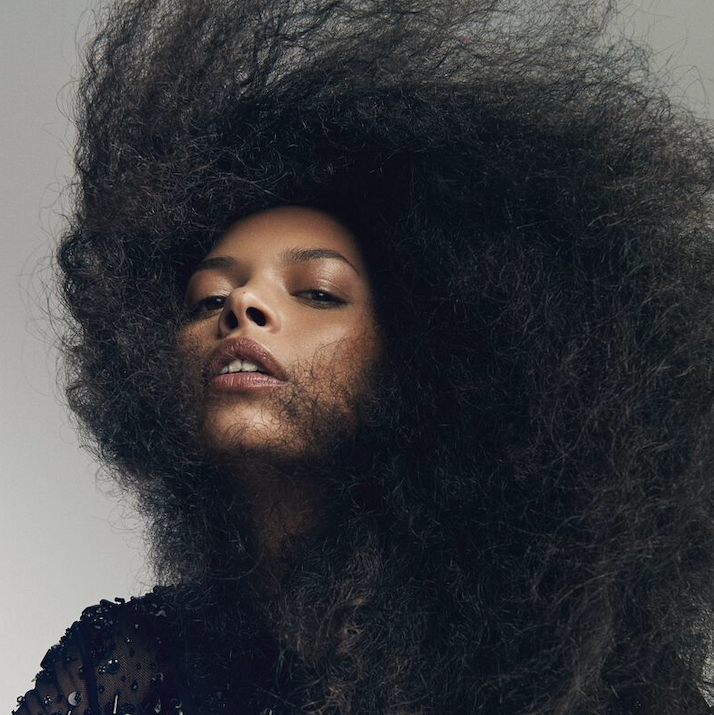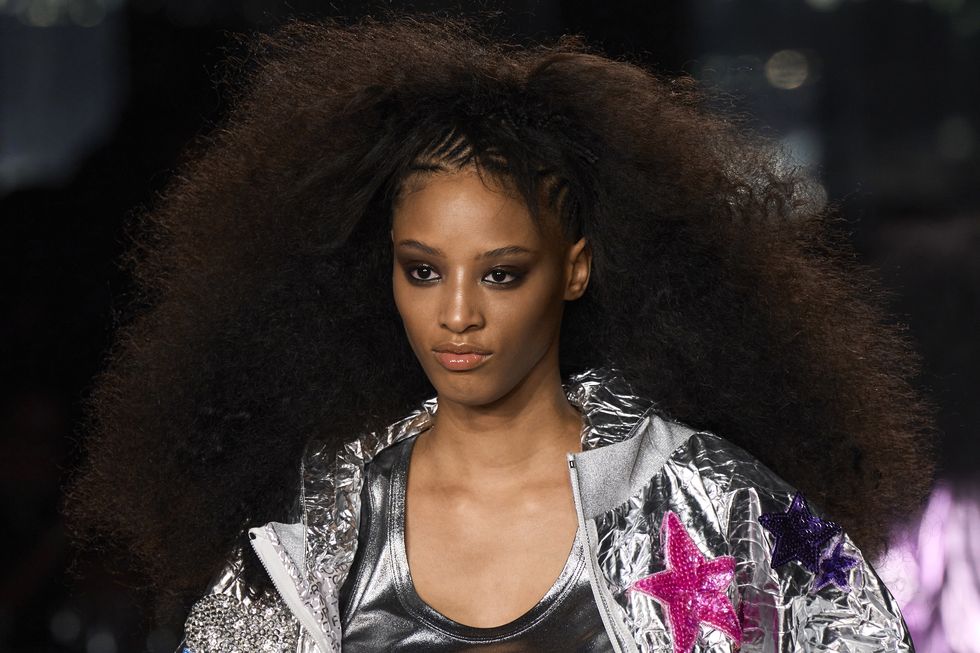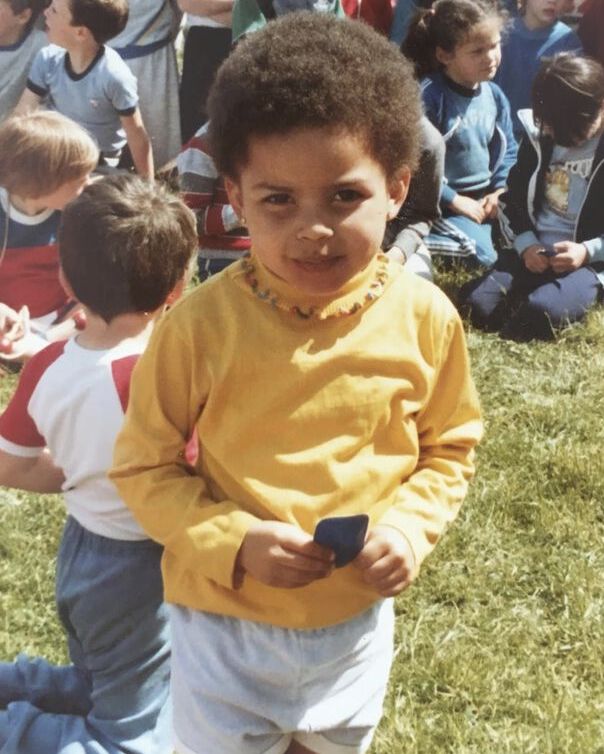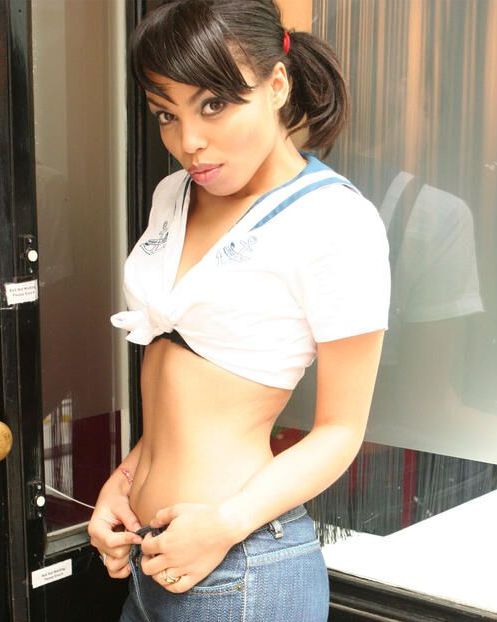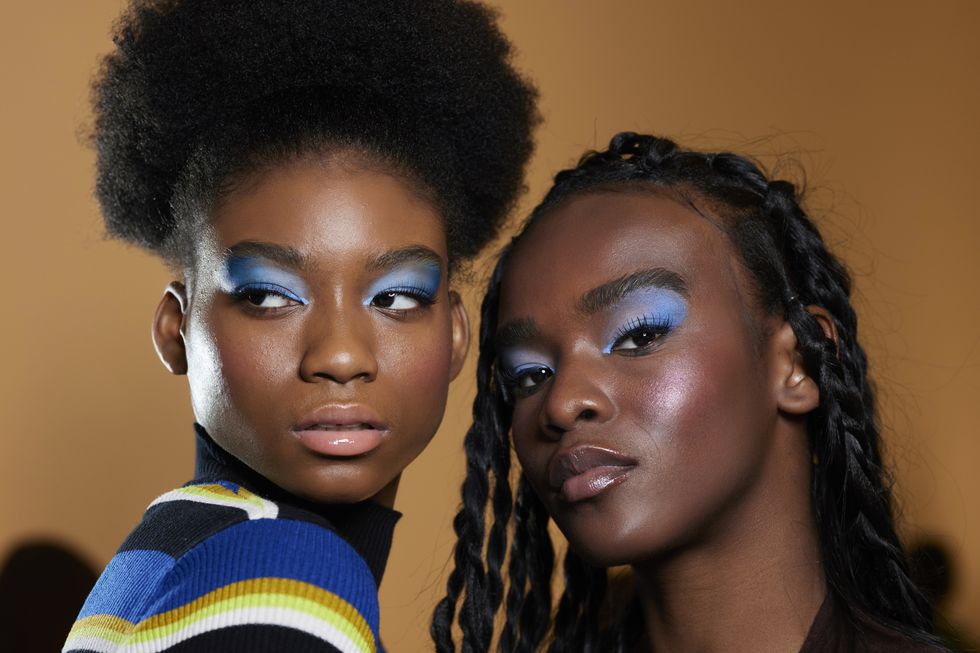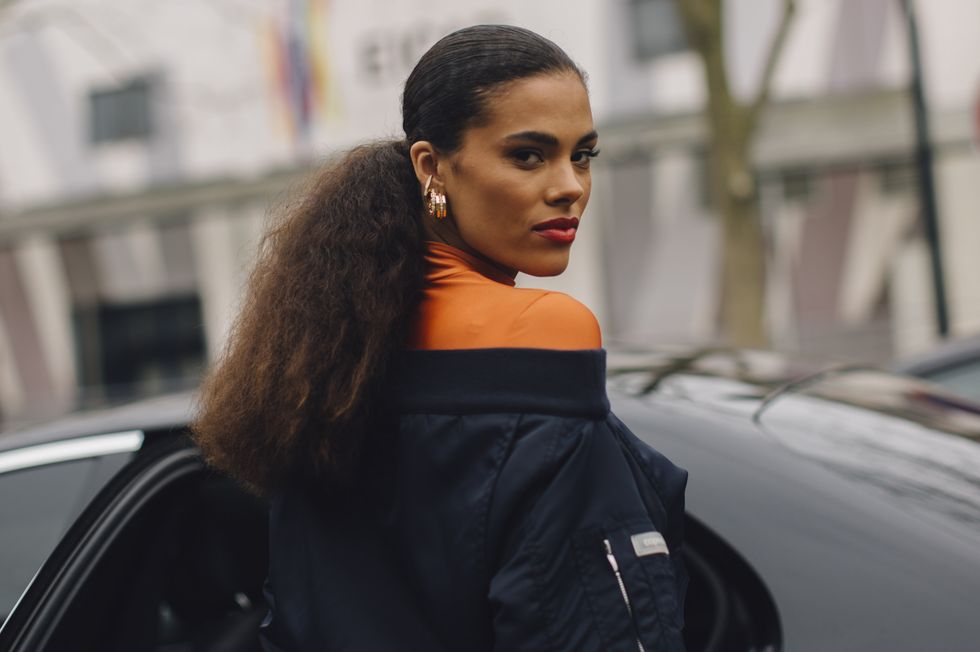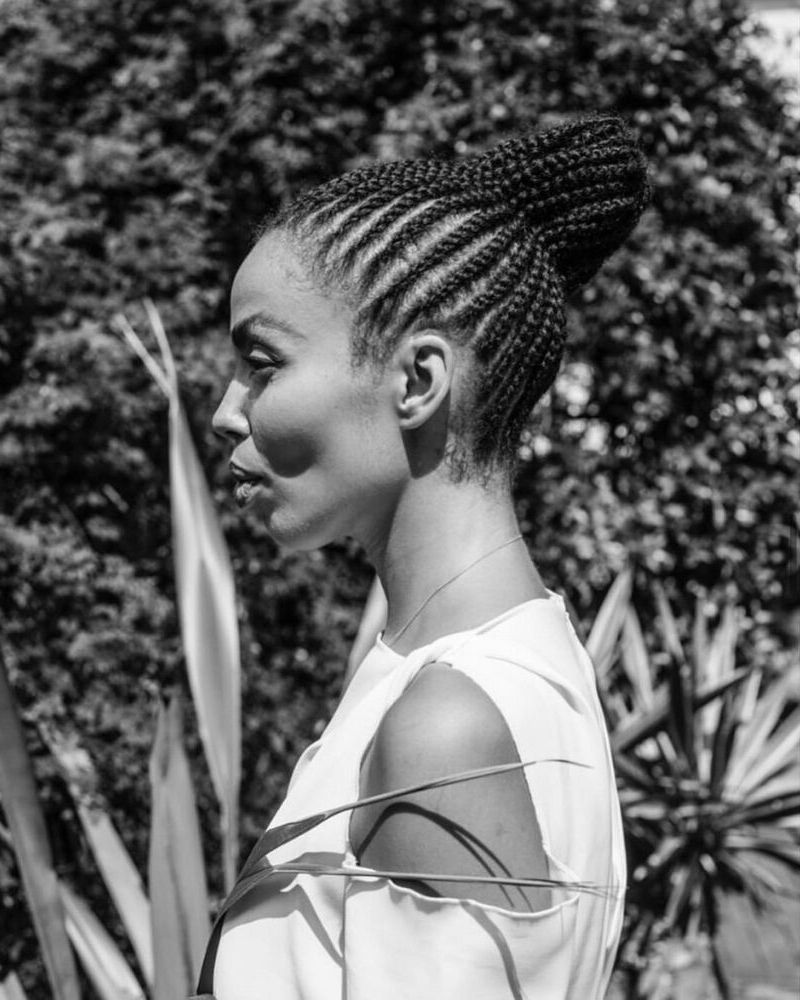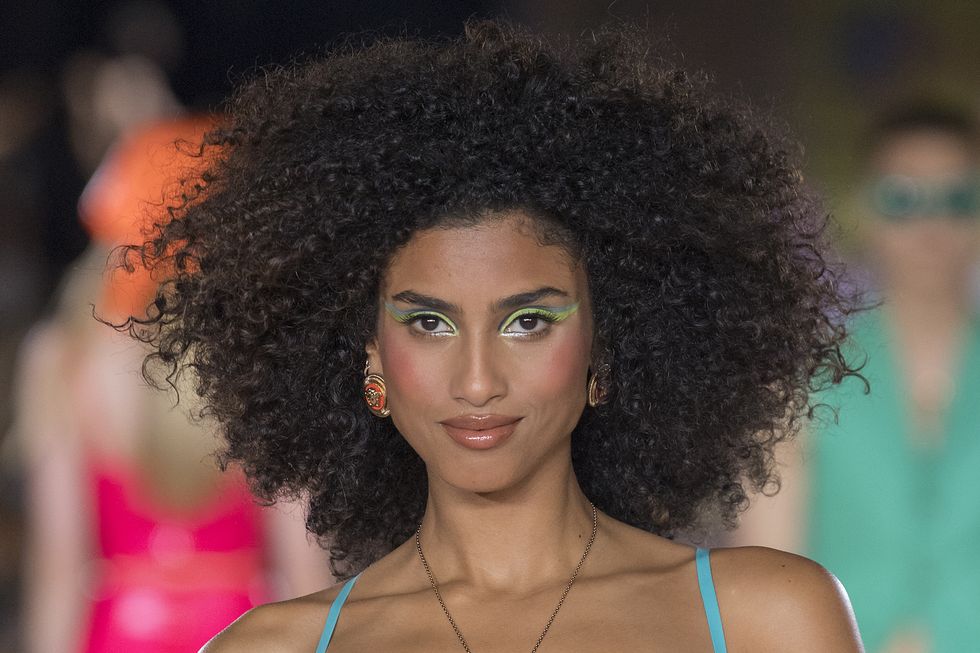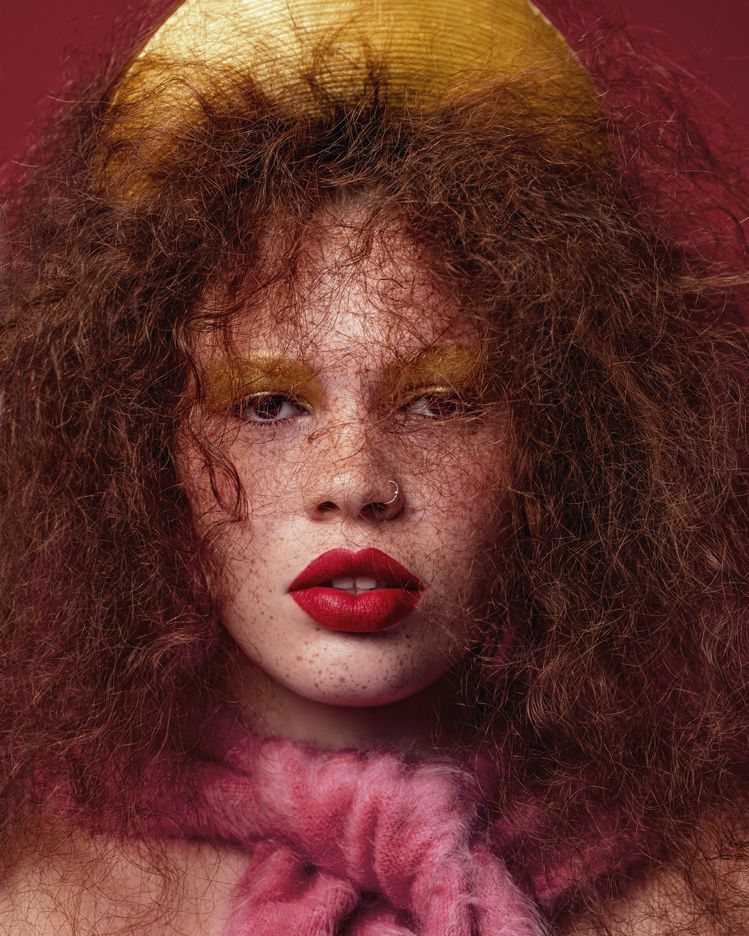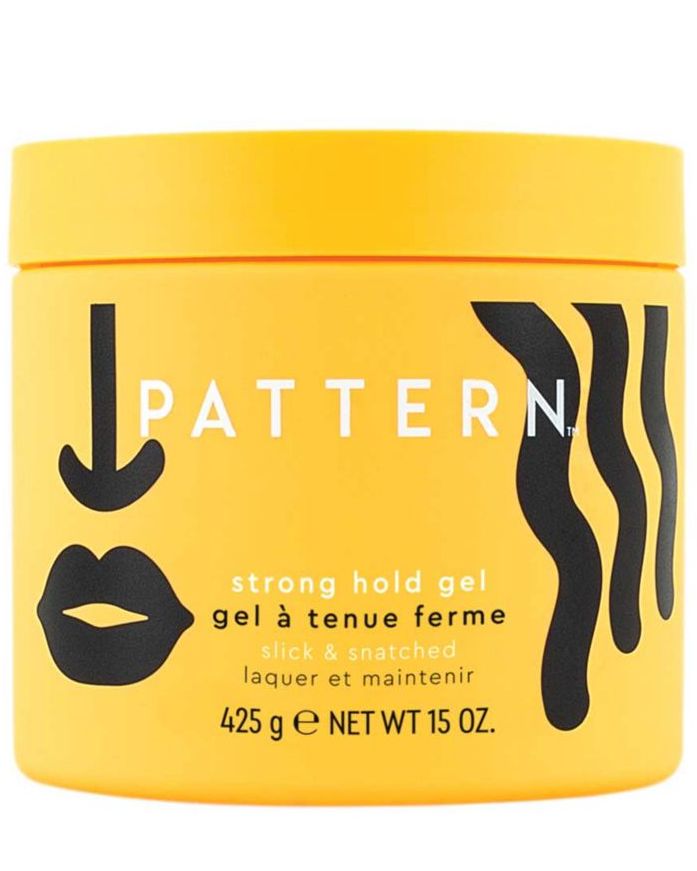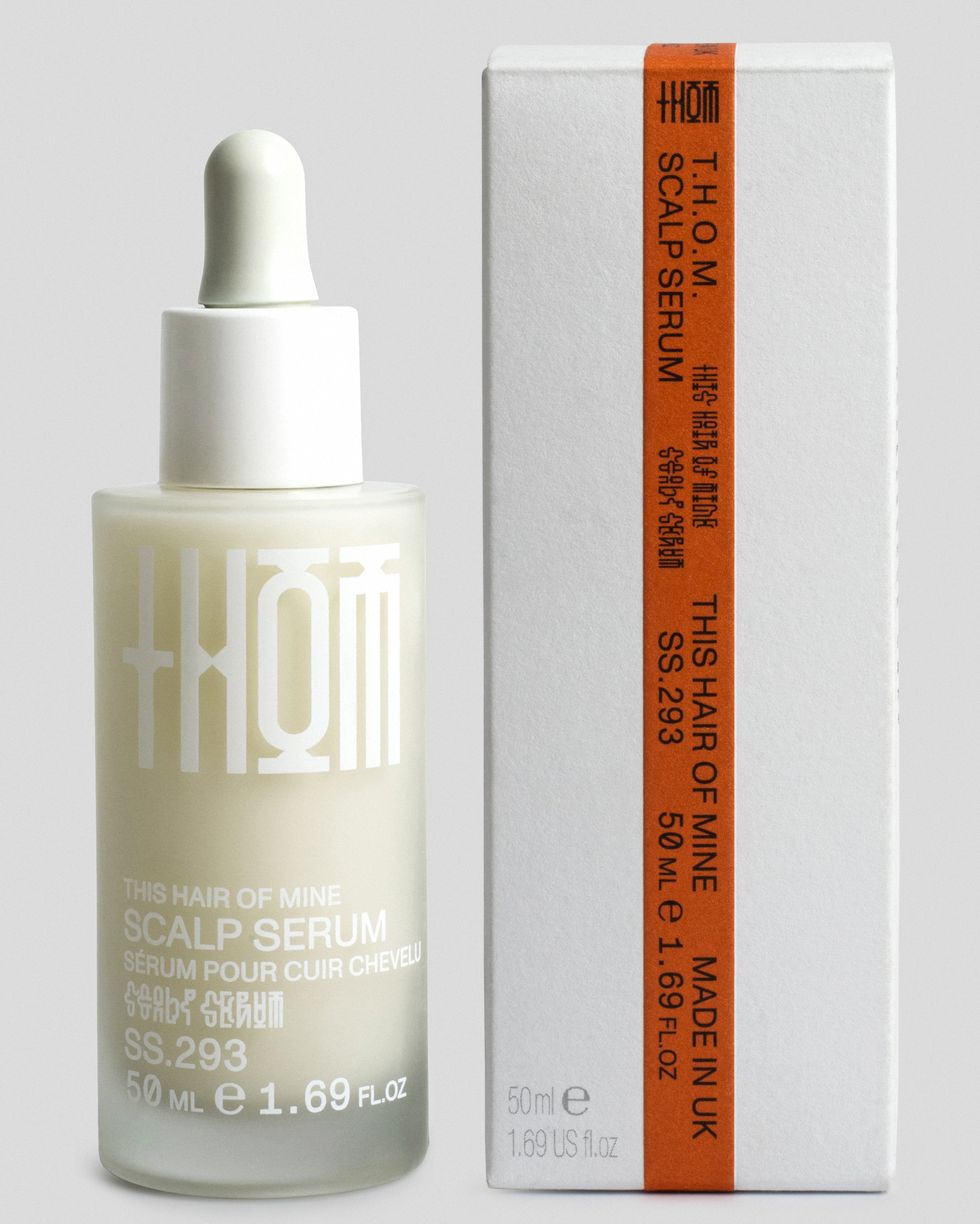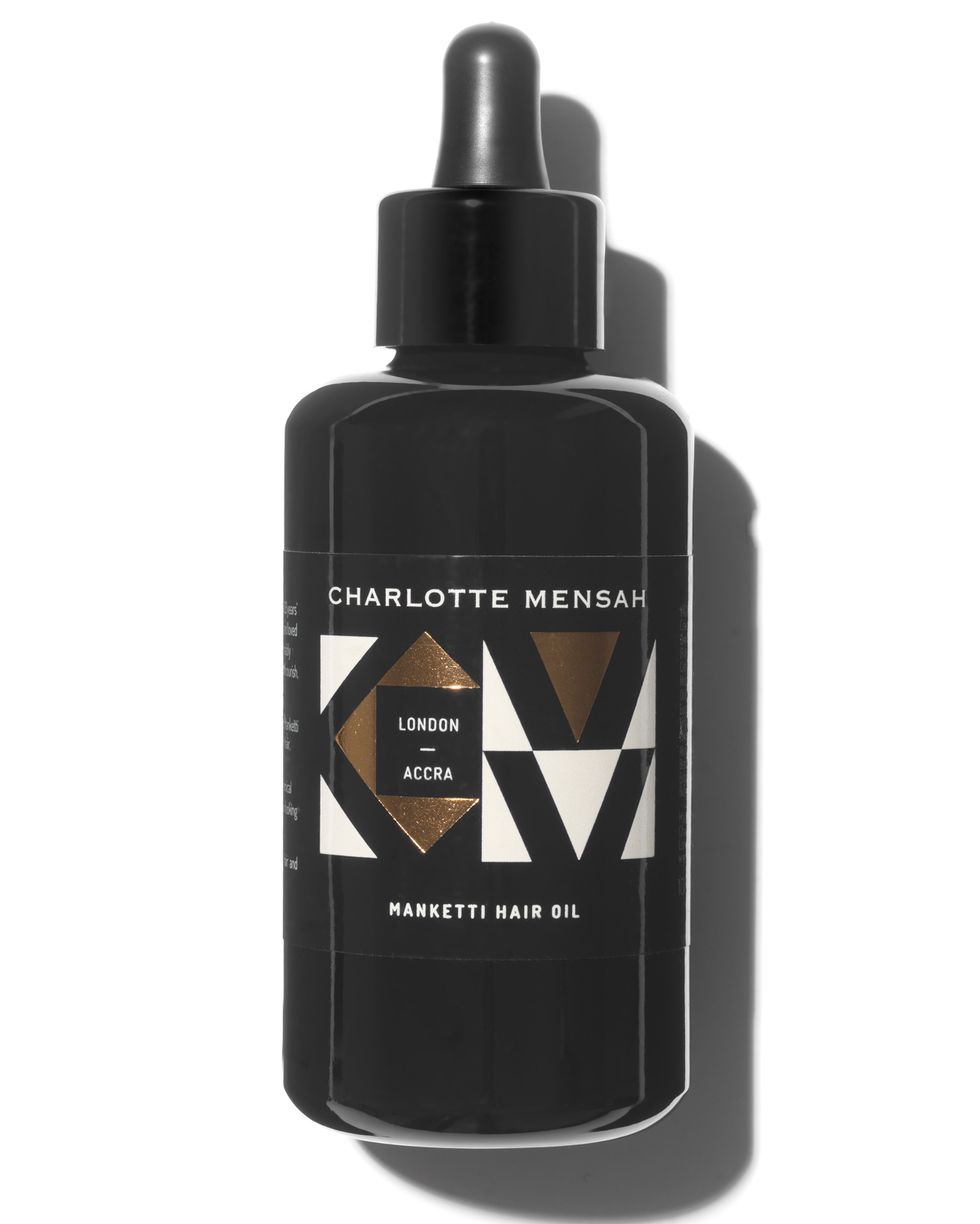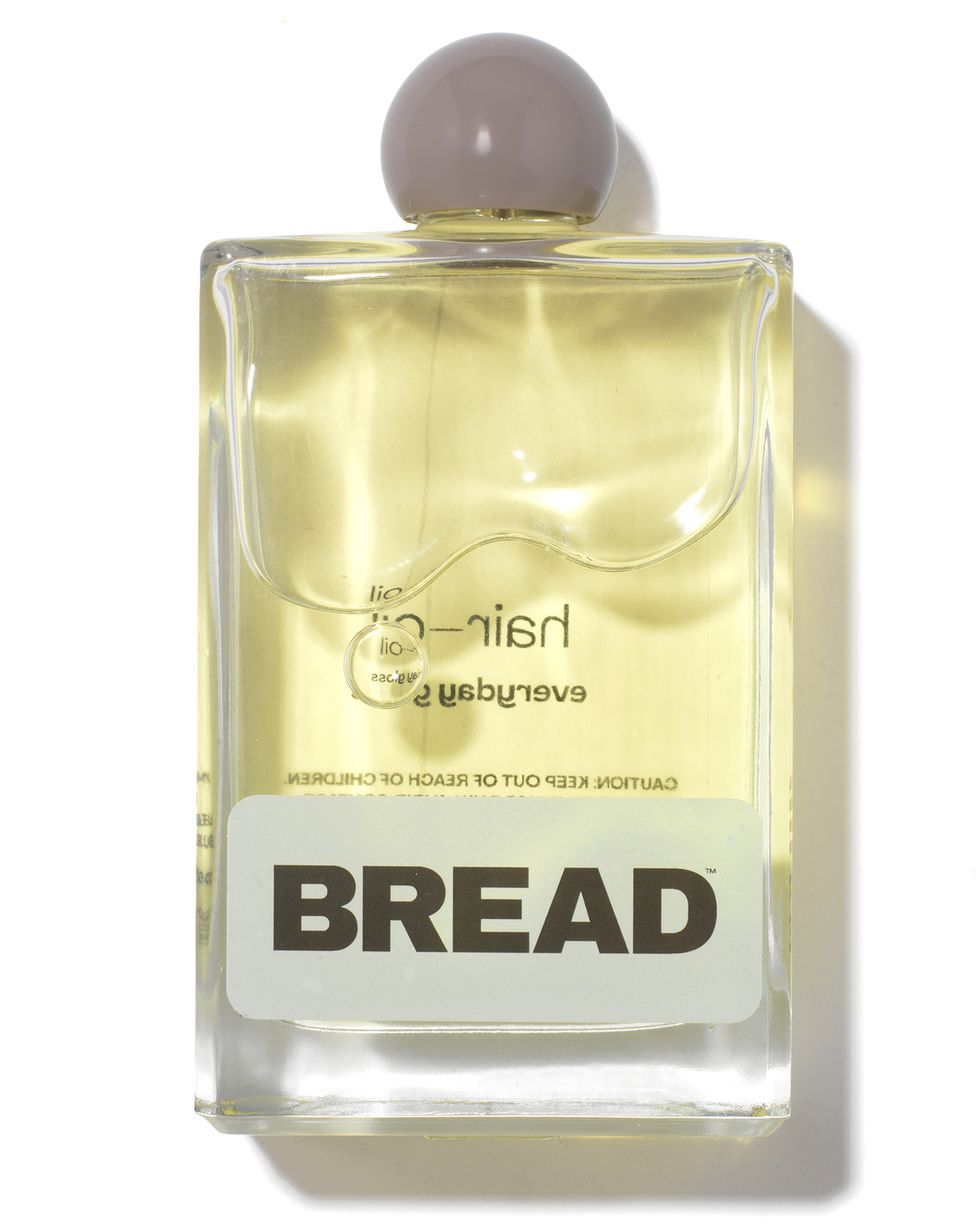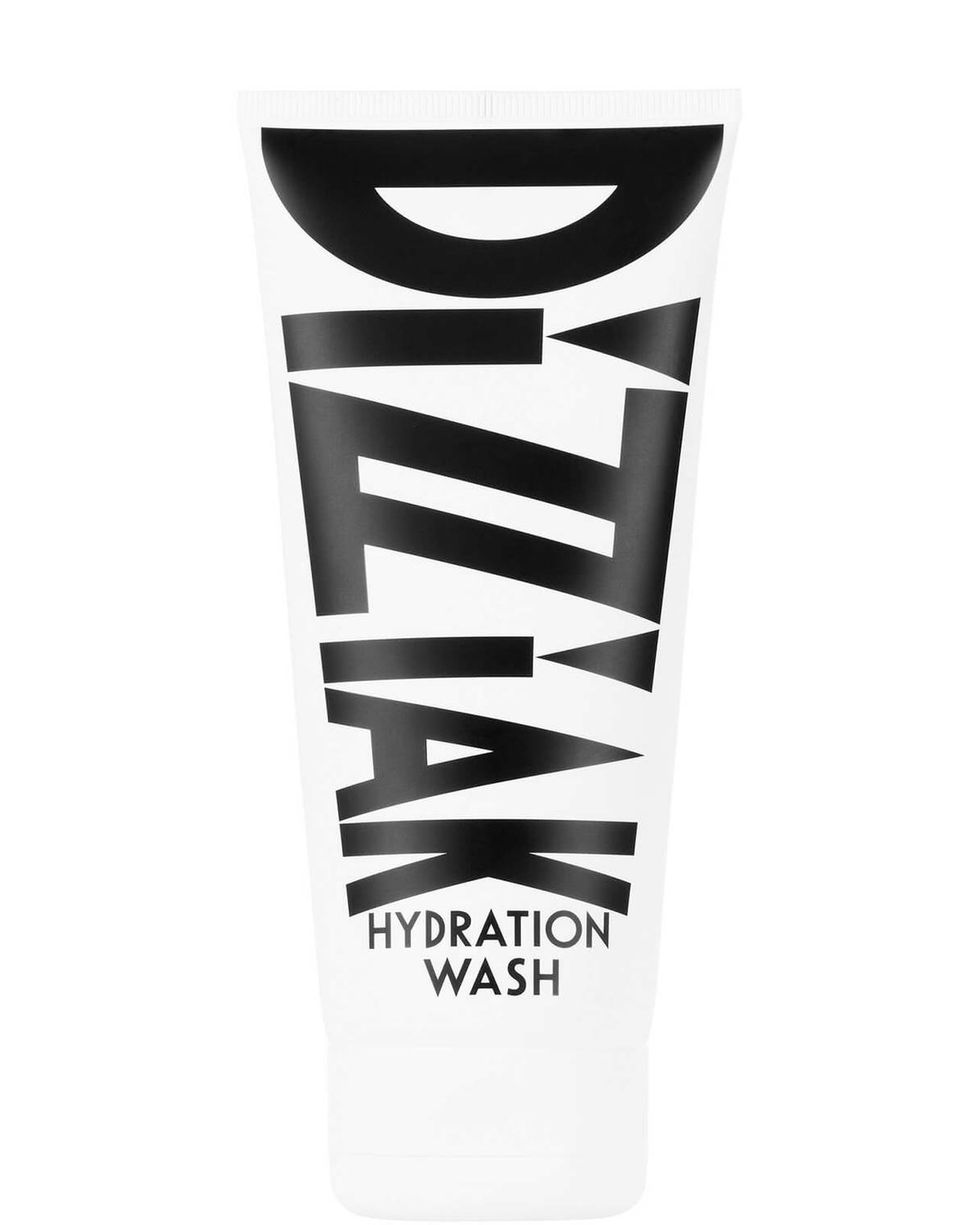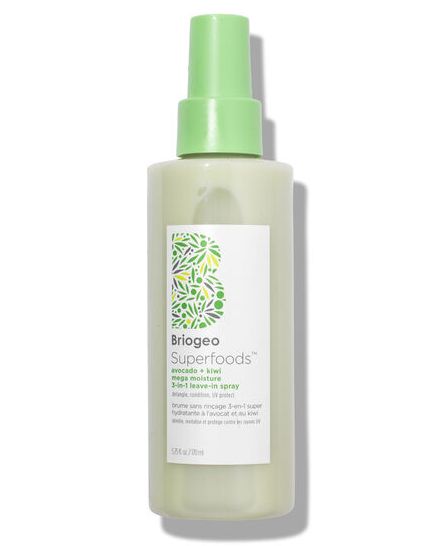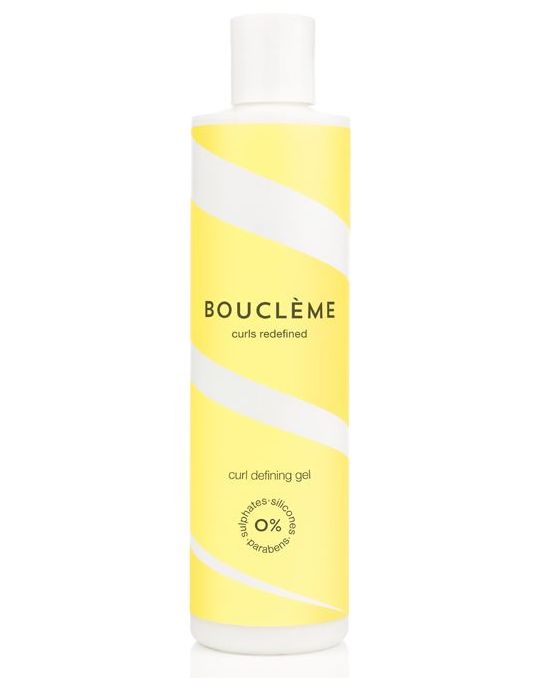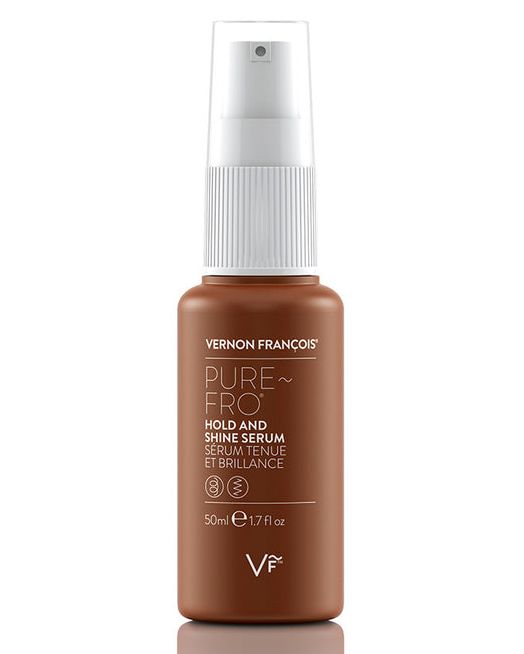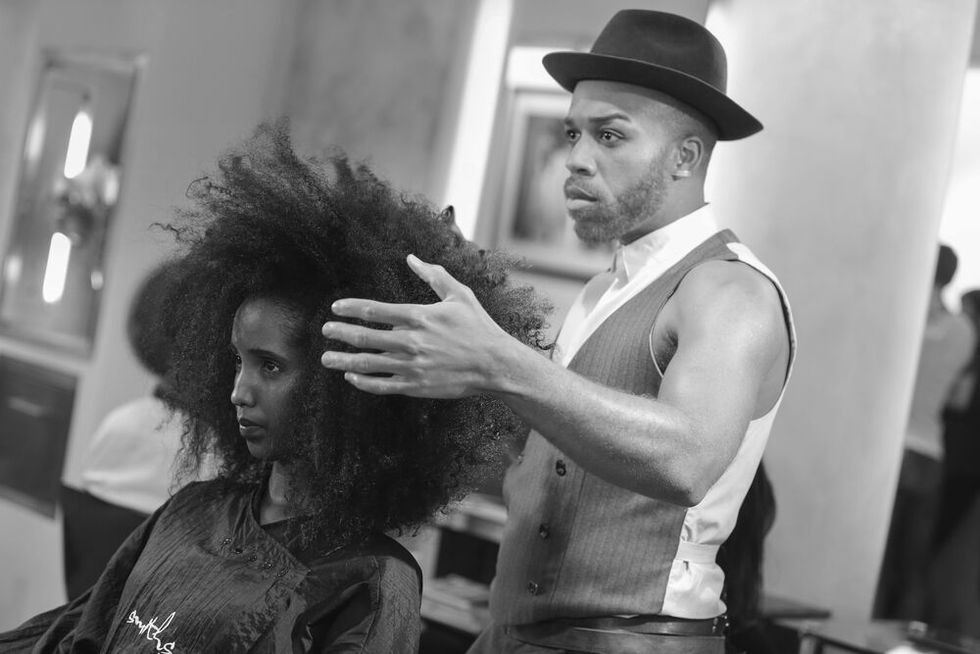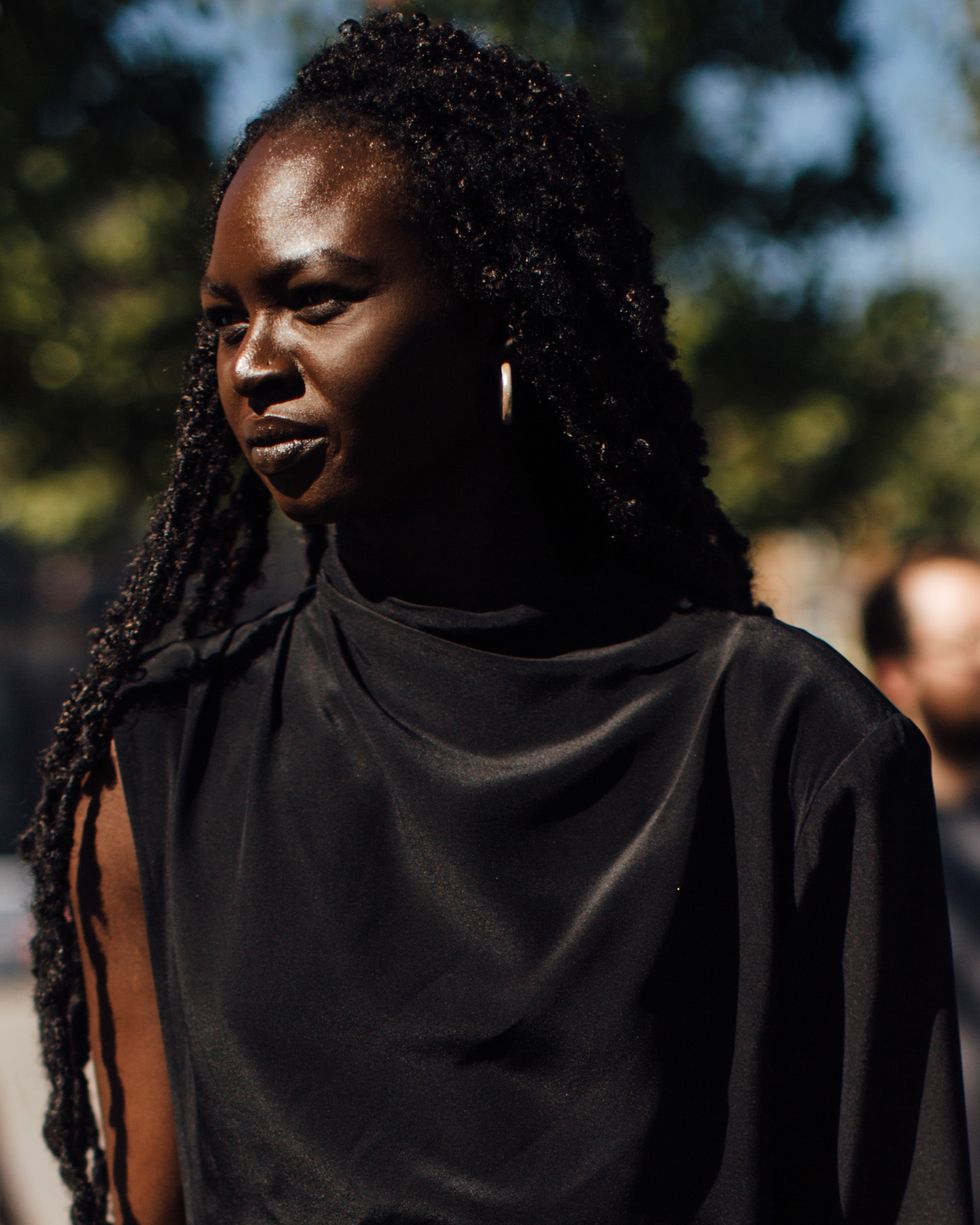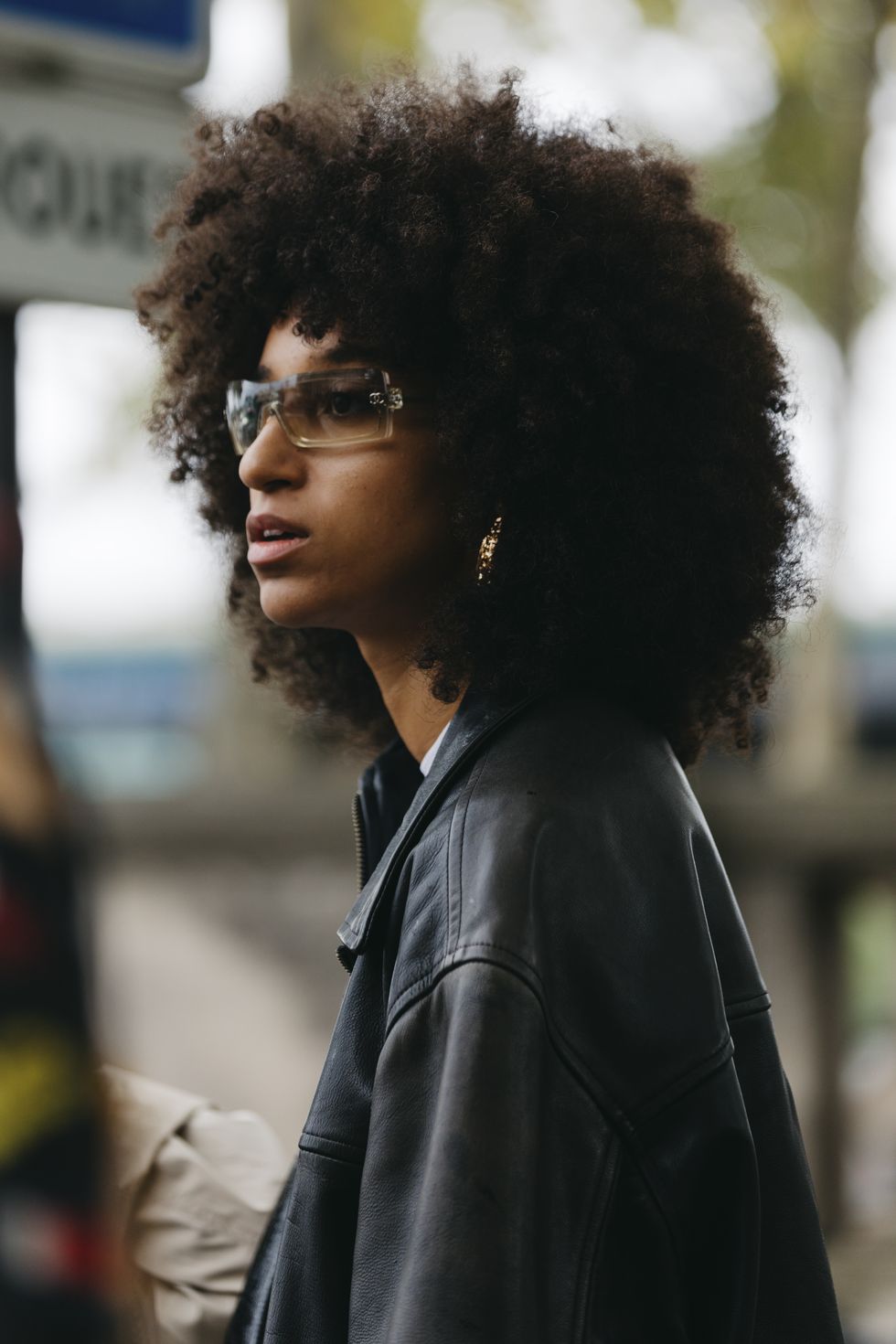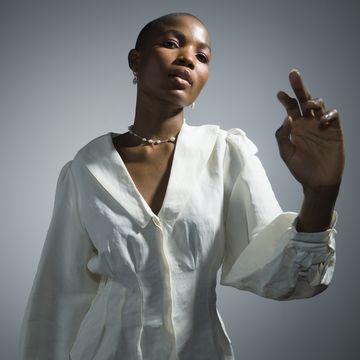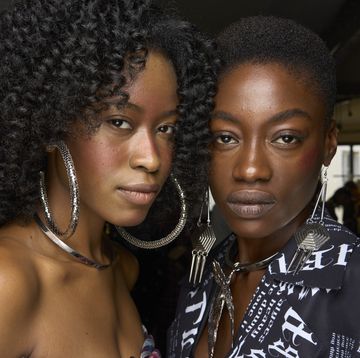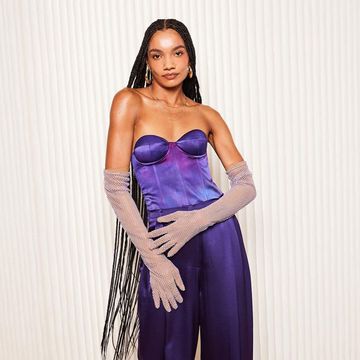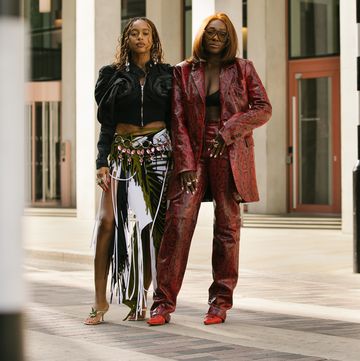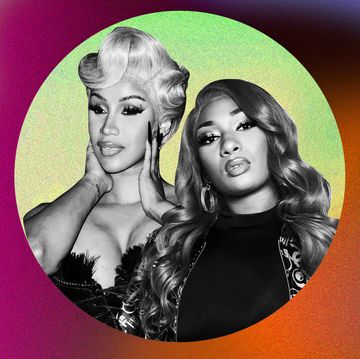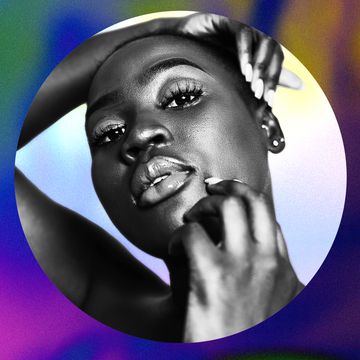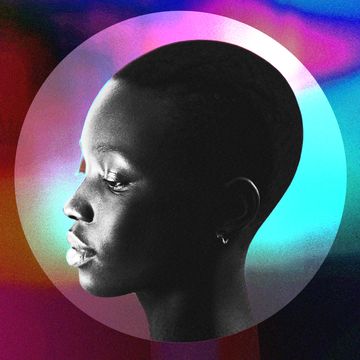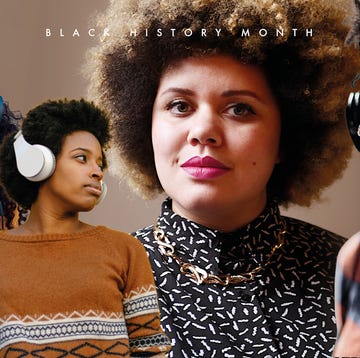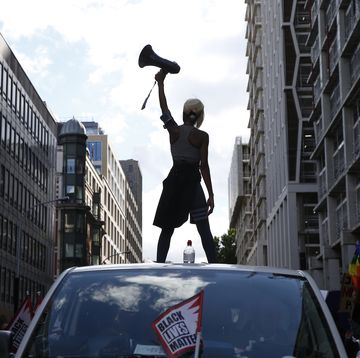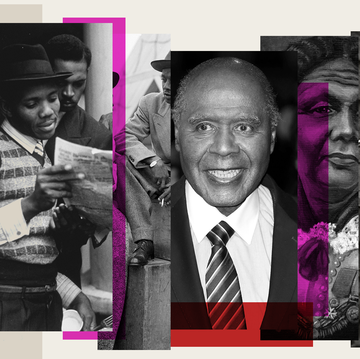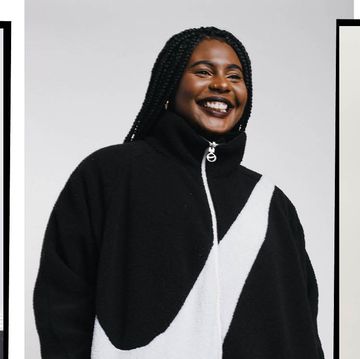On a bone-numbingly cold winter’s day, I made my way on the Tube from east to south London, to the Black Cultural Archives in Brixton, to do research for my 2019 book, Don’t Touch My Hair. Emerging from the Underground, somebody tapped me on my shoulder. I turned around and saw a Black woman in her early forties wearing a platinum-blonde wig. ‘Your hair is beautiful, natural; it’s good to see,’ she said. As I then wrote in that book, in these moments, ‘My heart sings. I am still overjoyed by such encounters. I will always rejoice in the camaraderie of Black people celebrating one another – especially when it’s in mutual appreciation of features we’ve been conditioned to detest.’
Upon reaching the Archives, though, I was quickly confronted with the opposing attitude; the one that was responsible for the feelings towards my hair that I had had for most of my life. While going through Nineties magazines, a headline jumped out at me: ‘Who lets you down – you or your hair?’
Reading these words in a 1991 edition of Black Beauty and Hair, in an advert for Black haircare products, I was gripped by anxiety. It was a sharp reminder of the childhood loathing I’d had for my hair, that bled into feelings of low self–worth more generally. As I delved further into the media and marketing around Black hair from that time, I saw again and again the dominant attitude back then, wherein our hair was imagined as an affliction that needed to be treated or, indeed, 'cured', via harsh, disciplinary methods. The adverts represented a 'battleground of chemically ruined hair… a world of shame and punitive measures…' as I wrote in my book. And my memories of many of the products themselves represent disappointment and unattainable ideals.
Attitudes to Black hair can be understood as a microcosm of the broader views of Black people in society. Since the days of the transatlantic slave trade – when the humanity of Black people was denied by Europeans in order to justify the systematic kidnapping and enslavement of millions of people of African descent – our hair has been stigmatised. During the early period of slavery, Afro textured hair was likened to wool, part of a strategy of placing Black people closer to animals than to humans. Even after slavery and post-emancipation, these attitudes remained. In order to be considered respectable, professional, neat and presentable, Black people were expected to straighten our hair to conform to Eurocentric standards. These 'norms' have continued to the present day.
Recent research by Dove in the UK has shown that one in four Black adults have been sent home from work or faced disciplinary action as a result of wearing their hair in a natural or protective style, and that more than half of Black children have been sent home from school for the same reason. While these attitudes are the result of racism, and have their origins outside the community, their logic has often been internalised within Black communities themselves. A hierarchy of hair texture emerged: the closer your hair was to European hair, the more beautiful it was considered. The expectation for more tightly coiled textures, like my own, was that you would have to chemically straighten it - a brutal process that I endured for years, applying harsh chemicals in order to deform the elliptical shape of the hair. 'Relaxers' as they are called (a gently euphemistic term for something that is anything but relaxing) break down the chemical bonds of the hair shaft, restructuring it in a new way so that it appears straight in a facsimile of European hair.
Yet despite the persistence of discrimination, among Black people ourselves there has been a revolution when it comes to our hair, which is having a huge impact on the broader culture. When it comes to curls, kinks and coils, the natural hair landscape in 2022 feels unrecognisable from the ideas that dominated the conversation about Black hair when I was growing up.
The tone is celebratory and unapologetic. Tracee Ellis Ross' new hair-care brand, Pattern Beauty, is the epitome of this new wave. 'There has been a renaissance in the textured hair landscape and community because [things] across the board are very different,' she says, 'The humanity of Black people is at the forefront of culture in a way that has evolved in the past five years. There’s an ownership in our narrative that has translated into the mainstream.' She references Issa Rae's transition from the cult YouTube creator of Awkward Black Girl to star of smash-hit HBO series Insecure as emblematic of this phenomenon. And, as Ross explains, this change in the culture is having a knock-on effect on hair and beauty.
Ross is quick to point out that, while the positive attention in mainstream film and TV may be new, the history of our hair is endless: 'We have been beautiful since the beginning of time,' she says. 'It's not that our hair has changed – it is that the industry’s interest in understanding it has shifted, and that feels very fertile and exciting.'
Here in the UK that sense of excitement and change is tangible as well. En route to a stint teaching at Villanova University in Pennsylvania earlier this year, I was struck as I packed my wash bag by the number of British haircare brands I was bringing with me. Until recently, whenever I was going to America, my habit would be to buy all my products once I arrived – there was little from this part of the world that could really compare, let alone compete, with Black American products. But as I packed my Dizziak and Charlotte Mensah creams and oils, the fact that the UK is now producing world-class products for Black hair really hit home.
When I spoke to the legendary stylist Charlotte Mensah, she highlighted the importance of the media we consume in some of the changes we've seen. 'Social media has grown exponentially over the past few years,' she points out, 'with ‘trends becoming a big part of popular culture, particularly for young people. We’re seeing people not only embracing but actively celebrating and honouring their natural texture. We have become more accepting and the conversation has turned to new ways of doing things. I only have to step out of my salon door on Portobello Road to see a sea of Afro hair, box braids and twist-outs – it's just amazing!’
Cyndia Harvey, the fashion hairstylist and founder of new brand This Hair of Mine - which centralises the importance of the scalp in Black grooming rituals - highlights the way this shift is influencing other aspects of culture as well. 'We’re seeing more and more Black hairstyles being celebrated on the runway, in magazines and on TV. It was six years ago that I created the This Hair of Mine film with Akinola Davies Jr, born from the realisation that almost my entire portfolio was Caucasian models, which was reflective of the industry at the time. It was then that I made a conscious move to make Black hair the centre of my work, bringing an element of fantasy to hairstyling onto the runway and into shoots.'
Moving from the margins to the centre is an idea that comes up frequently. We know Black diasporic culture, the cultures of the descendants of people from Africa, are hugely influential in popular culture. Across the world - from the way we speak and dance to what we listen to and eat, to the ways we think about what freedom and liberation might look like - so much is informed by Black culture. But, for a long time the source of all this innovation was denied, while people of African descent in western societies were generally overlooked.
Ross says Pattern is a brand that is for everyone who has curly, coiled or tight textured hair, which requires moisture and hydration. The label joins a cohort of brands from pioneering stylists that have taken a similarly inclusive approach including Vernon François' eponymous haircare range and Anthony Dickey’s Hair Rules. She recognises that many people who are not identified as Black also have these hair types (curly and coily at least; the more tightly textured type of hair like my own is generally only found among people of African descent). But something so ground-breaking about this moment is that, while these products have been developed for people of any 'race' with textured hair, the brand is built around the celebration of Black beauty. Rather than Black people being an afterthought, as in the past, Blackness now is setting the standard; it is this idea that constitutes a radical departure.
'When it comes to haircare, the textured hair community is the innovator,' says Harvey. 'Across the entire industry big brands are taking inspiration from this community, which has seen the mainstream popularity of scalp care increase, a practice so intrinsic to Black families. Terms such as “silicone-free” and “paraben-free” are now widely used. Use of the phrase “wash day” and accessories such as micro-fibre towels and protective silk products were all born within the Black community, from our hair rituals.' I can see it myself: white friends of mine with curly hair, who would have usually blown it straight or used straightening irons, are embracing their curls and using techniques and language derived from Black haircare innovations. It is remarkable to observe.
It’s important to highlight that a hierarchy still exists in textured-hair communities: curly textures still remain the standard to which many aspire. As someone with a more tightly coiled texture my relationship with my hair continues to evolve. It’s still difficult for me to find stylists that can do my hair without straightening it first, or who will focus on working with its texture rather than manipulating it. This is why stylists like Subrina Kidd are so important. I have been going to Kidd since 2016 (she's recently opened her own salon in Dalston). While she works with all textures, and I always recommend her to anybody with hair, when it comes to a texture like mine she’s one of the few people (in the world) I trust. Her technical cuts mean that, even after I take my hair out of a protective braided style, my afro maintains a good shape, which for me is a key factor in being able to wear it out.
Recently I had an appointment with Kidd to get highlights (a really big deal for me and not something I would trust many – or any – other people to do), so I took the opportunity to ask her what she thinks has changed, as well as what more needs to be done. She cites lockdown as a factor, describing how during that period, when people no longer had easy access to stylists and salons, there was a sort of reckoning with our hair. We had more one-to-one time with it, experimenting and playing around with it.
Kidd also notes the influence of editorial hair stylists such as Nikki Nelms – known for creating iconic hairstyles for celebrities from Zoë Kravitz and Janelle Monáe to Solange and Serena Williams – or Lacy Redway who has styled hair for the covers of some of the most prestigious fashion magazines in the world and who works with celebrities like Tessa Thompson, Zazie Beetz, Keke Palmer and Venus Williams. There is also Jawara Wauchope, who is one of the editorial world’s most in-demand stylists for his sculptural work and has styled everyone from Beyoncé and Rihanna to Bella Hadid. In the past, it was taboo to see natural, tightly coiled hair textures on screen; Black actors would generally either have less coiled hair textures or Afro textured hair would be hidden under a wig.
The increased visibility of products for textured hair has also helped to normalise our hair. Many products are available on the high street, something that might seem unremarkable but was almost unimaginable until very recently. Previously, one could only purchase Black haircare products in 'diverse' areas of larger cities – making them inaccessible for many.
The aesthetics have also changed dramatically. When Ross and I meet, I remark on how lovely the Pattern packaging designs are (all of these new brands look and smell sublime). Ross explains that the inspiration for this came from the fact that, ‘growing up, the products for my community were not beautiful. They always looked the same. They didn’t match [a standard], where you could have them on your counter and they just look gorgeous.’ It was important to Ross that Pattern, ‘looked unique and had a sense of joy and elegance to it.’
Seeing public figures and ordinary folks both online and in traditional media rocking their natural textures inspires others to do the same. As Harvey says, 'I think a collective shift of consciousness has happened in the last five years, we have seen this reflected across the industry. People are no longer willing to conform but, instead, are inspired by one another to seek and live in their truth [and] celebrate each other and their differences. It’s not the industry that’s changing, but the people who the industry depends on.'
We’ve undoubtedly come a long way, but there is still change that needs to happen. It’s interesting to observe that the best textured hair stylists can do all types of hair, and have many white clients or clients with straight hair. The idea that textured hair is not some specialist sub-section – but is, in fact, just hair and should be treated as such – comes up frequently. As Kidd explains, ‘We need to teach stylists coming up about all textures. Hair is just hair.’
The fact that this point still has to be made is revealing. It remains that, for many, the exclusionary practices and negative discourse around textured hair were part of the stigma associated with Blackness. As we redefine our terms of engagement, we see the emergence of a new model, where we are free to just be, on our own terms. With this change comes countless others. The cultural dial is reset, and a previously unknown range of possibilities opens up to everyone.
